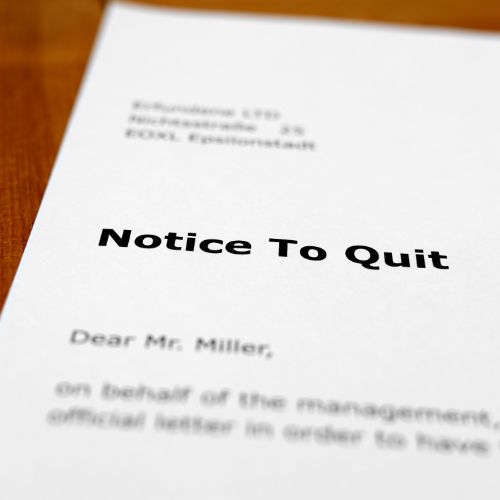Ejectment is the legal process for recovering possession of land or title. In Northern Ireland, ejectment proceedings are commonly used to secure the eviction of private tenants who have not vacated the property following the service of a valid Notice to Quit.
Landlords can serve a Notice to Quit on a tenant for various reasons during a tenancy including for example, rent arrears, anti-social behaviour or other breaches of the lease. Currently and until at least 30 September 2021, landlords are required to give 12 weeks’ notice to quit irrespective of the timeframe stipulated in the lease; this is due to extra protections introduced for private renters during the Coronavirus pandemic.
If a Tenant remains in the property after the Notice expires, a landlord has the right to apply to the County Court for a possession order. The instructed solicitor will begin by writing to the tenant advising them that legal action will be taken if they do not vacate the property. If the tenant does not leave, a Civil Bill will be issued seeking possession of the property. The Civil Bill will also outline any monetary claim, if applicable (rent arrears and/or property damage). A tenant has 21 days to enter a Notice of Intention to Defend before a Hearing date is fixed.
If the Judge grants the possession order, the tenant will be given a date by which to vacate the property. As there are no bailiffs in Northern Ireland, if this date is not adhered to by the tenant, the landlord will have to apply to the Enforcement of Judgements Office (EJO) to have the original order enforced.
If you are a landlord and require assistance to evict a tenant, remember to firstly check your landlord insurance for legal costs cover before embarking on ejectment proceedings.
If you have any further queries or would like any further information on how Worthingtons can help you, please contact our office on 028 9043 4015 or email [email protected].


